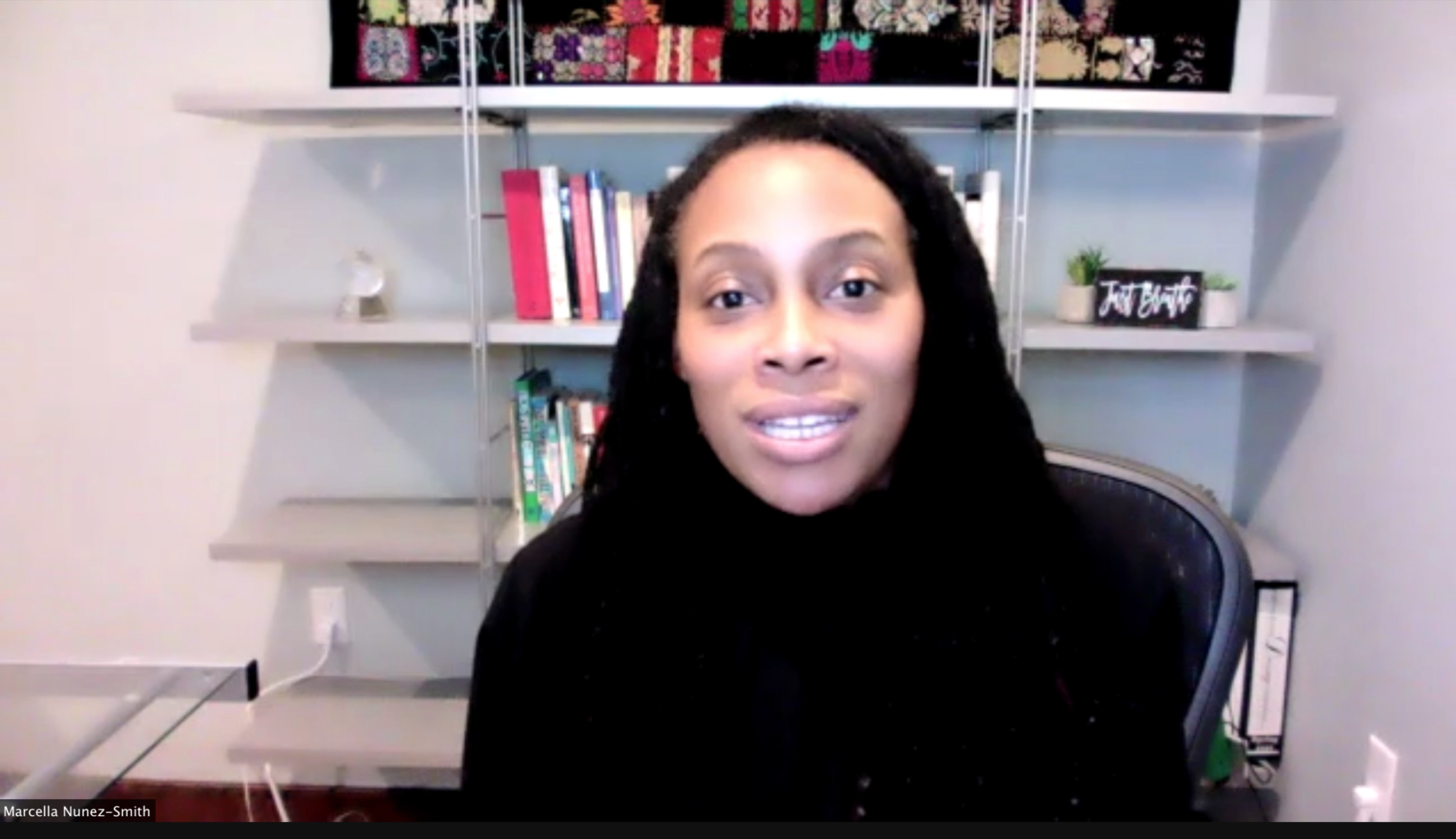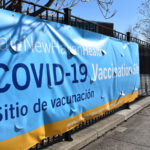
Natalie Kainz, Contributing Photographer
Side effects, undocumented migrant access to vaccine clinics and the length of antibody protection were all topics raised during a Yale School of Medicine town hall on Wednesday.
On Monday, Yale health experts, New Haven church leaders and national legislators held a town hall on Zoom to address the importance of vaccination in communities of color. The event, titled “What You Need to Know About the Vaccine and COVID-19,” invited the public to ask questions about vaccine distribution, particularly in Black and Latinx communities.
“Black and brown individuals are getting vaccinated at rates lower than we would expect given their representation in the general population,” said Marcella Nunez-Smith, the head of President Joe Biden’s COVID-19 health equity task force. “In a conversation about vaccine confidence, [we have to] also talk about vaccine access.”
Nunez-Smith is the associate dean of health equity research at the Yale School of Medicine and the deputy director of the Yale Center for Clinical Investigation. She said that though race-ethnicity data on vaccines is severely lacking, existing data clearly shows patterns of racial disparity in vaccine distribution.
Among other things, the Biden administration is currently trying to increase race-ethnicity data on vaccines, expand retail pharmacy programs, partner with more community health centers and increase the number of mobile vaccination units.
“All of these initiatives are about getting direct federal doses to these sites and making sure that we are putting the sites where they are most needed, using metrics like the social vulnerability index,” said Nunez-Smith.
According to the Centers for Disease Control, the Social Vulnerability Index was developed to assess “the negative effects on communities caused by external stresses on human health.” In the most recent SVI data set from 2016, New Haven has a score of 0.8492 out of 1, indicating a high level of vulnerability.
Increasing race-ethnicity data is one of the priorities of the Food and Drug Administration’s Office of Minority Health and Health Equity, which works to protect the health of underrepresented populations through outreach and communication. Rear Adm. Richardae Araojo, the associate commissioner for minority health at the FDA, also spoke at Wednesday’s event.
“[For] anyone that works in the space of health disparities, we all know that we cannot do this alone and it’s critically important that we work together,” said Araojo.
The FDA’s health equity office has a memorandum of understanding with Yale which allows them to engage with the Yale Center for Clinical Investigation’s Cultural Ambassadors program, which aims to increase local minority participation in clinical trials. The Cultural Ambassadors program is a community partnership with Junta for Progressive Action, a Latinx nonprofit in New Haven, and the African Methodist Episcopal Zion Church — the Elm City’s oldest Black congregation.
Tesheia Harris, the deputy director and chief operating officer at the YCCI, organized the town hall. She said that one of the goals of the Cultural Ambassadors program is to increase the level of trust in research and medicine in communities of color.
“When we started the ambassadors program, we heard from the community that the only way to change [low representation of minorities in clinical trials] was to have the voice of the community at the table,” Harris said. “[Ambassadors] gain the knowledge [to] understand all these very complex research issues and then help carry the message to their community.”
Rev. Elvin Clayton, a pastor at Walter’s Memorial AME Zion Church in Bridgeport, and Rev. Leroy O. Perry Jr., a pastor at St. Stephens AME Zion Church in Branford, are both Cultural Ambassadors for the YCCI. Both religious leaders said they participated in clinical trials of the Pfizer vaccine to show their communities that they could trust researchers.
Clayton said that COVID-19 has hit worship communities particularly hard because the community can no longer gather to worship. He described the vaccine as a “bright light shining at the end of the tunnel.”
Perry said he appreciates the two-way exchange of assistance in the Cultural Ambassadors Program. He brings Yale researchers to his community and finds minority participants for clinical trials, while Yale helps him address the medical concerns of his community and bring focus to the issues that matter most to them.
“If there was any time when America needs to come together and start at the bottom up, this is that time,” said Perry. “I tell everyone that I got the shot. That’s good news — that’s gospel news.”
Thomas Balcezak, chief medical officer of Yale New Haven Hospital and senior vice president of the Yale New Haven Health System, addressed some of the other ways in which Yale is partnering with the city and the state to aid community health. That includes setting up vaccine pop-up clinics, monitoring information hotlines that enable people to book appointments and dedicating resources towards Project Access — a nonprofit which aims to increase access to medical care for underserved patients in New Haven.
“We’ve been [reaching out to] our known list of individuals who are undocumented who have received care through Project Access,” said Balcezak. “The vaccine is free, if you have no insurance you don’t need to pay anything for it… Your immigration status is nothing to be asked for, looked for, or that we have any interest in verifying.”
Nunez-Smith added that none of the data collected in tools of registration for vaccination goes to federal immigration services. She said that all vaccination sites are Immigration and Customs Enforcement free and that the current administration is working on eliminating other structural barriers to vaccination.
Attendees asked about the severity of vaccine side effects during the Q&A section of the town hall. In response, associate professor of Medicine Onyema Ogbuagu said that side effects occur with every vaccine and that those connected to COVID-19 vaccinations are mild to moderate.
“The vaccine’s side effects are a good thing because it correlates pretty well with developing appropriate immune responses,” said Ogbuagu. “The [side effects] are worth it compared to the protection you get from the vaccine.”
Both Pfizer and Moderna are mRNA vaccines. Instead of injecting the body with a weakened or inactive germ, mRNA vaccines teach the body’s cells to make proteins to trigger an immune response.
Ogbuagu said that although mRNA vaccines are new to authorization for human use, the technology has existed for more than 20 years and has been tested extensively.
Attendees also asked questions about how long antibodies from the vaccination will last. Ogbuagu said that clinical trials on lasting immunity from the vaccination are ongoing and have been running for more than a year.
“There’s going to be longitudinal assessments of the antibody level over time and I think we’re going to learn so much more,” said Ogbuagu. “We think that at least for the next year or so, people who have been vaccinated should be protected.”
Allen Hsiao, the chief medical information officer at the Yale School of Medicine and Yale New Haven Health, also attended the town hall. He spoke about the importance of the electronic health record, which enabled the University to geomap COVID-19 hotspots, track the number of patients in each hospital and discover where personal protective equipment was needed.
Nunez-Smith emphasized that the country is on the cusp of receiving enough supply of the vaccine to resolve the pandemic. She said that now is not the time to let down your guard.
“Faith without work is dead so we pray now that we will do the work,” said Clayton. “We hope that those on the Zoom call tonight who are on the fence about getting the vaccine will get on board.”
Since Dec. 15, Yale New Haven Health has administered 115,000 individual shots and within those, 70,000 people have received both doses, according to Balcezak.
Natalie Kainz | natalie.kainz@yale.edu









